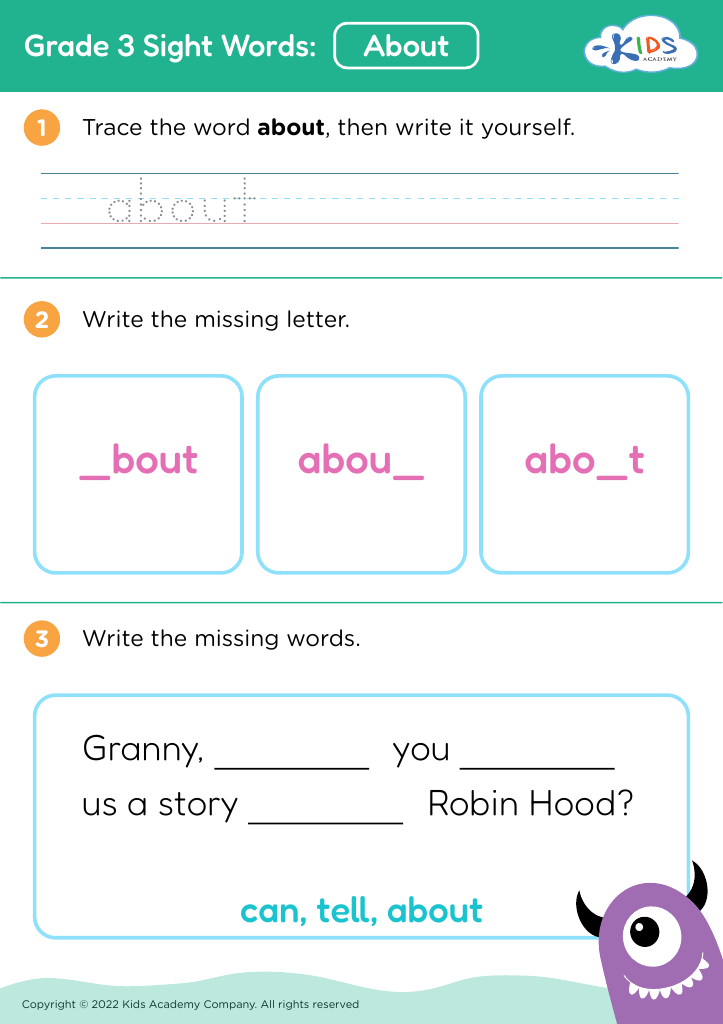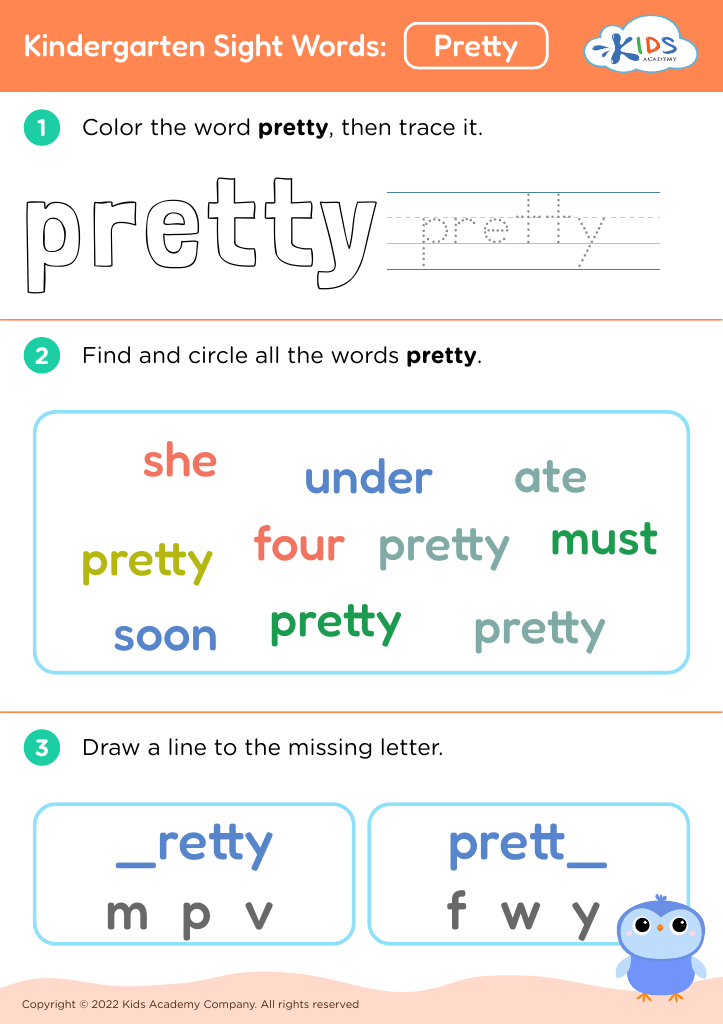Practice addition Building Vocabulary Worksheets for Ages 5-9
3 filtered results
-
From - To
Enhance your child's math skills with our "Practice Addition Building Vocabulary Worksheets" designed for ages 5-9! These engaging worksheets combine fun and learning, helping students practice basic addition while enriching their vocabulary. Each activity not only reinforces arithmetic skills but also introduces new words, fostering a love for language alongside numeracy. Perfect for classroom settings or at-home learning, our worksheets encourage critical thinking and independent problem-solving. Help your child build a strong foundation in math and vocabulary while enjoying bright illustrations and interactive exercises. Explore our collection today and make learning an adventure!
Practicing addition and building vocabulary are crucial developmental milestones for children aged 5-9, making them particularly important for parents and teachers. First, strong arithmetic skills foster not only mathematical competence but also critical thinking and problem-solving abilities. Addition is foundational for more complex math concepts they will encounter later in school, ensuring that children develop confidence in their skills and enjoy a positive attitude toward learning.
Similarly, vocabulary development enhances communication abilities and comprehension skills across all subject areas. A rich vocabulary enables children to express their thoughts more clearly and understand instructions better, which is essential in both academic settings and everyday life. For language subjects, precise vocabulary aids in reading comprehension, allowing students to grasp stories and concepts effectively.
Moreover, the interconnection between math and language skills cannot be overlooked; vocabulary related to math (like "sum" and "plus") is important for understanding word problems. Therefore, parents and teachers should actively engage children in both addition practice and vocabulary building to ensure holistic development. Together, these skills not only contribute to academic success but also prepare children for future challenges, fostering lifelong learning and overall cognitive growth.






.jpg)












